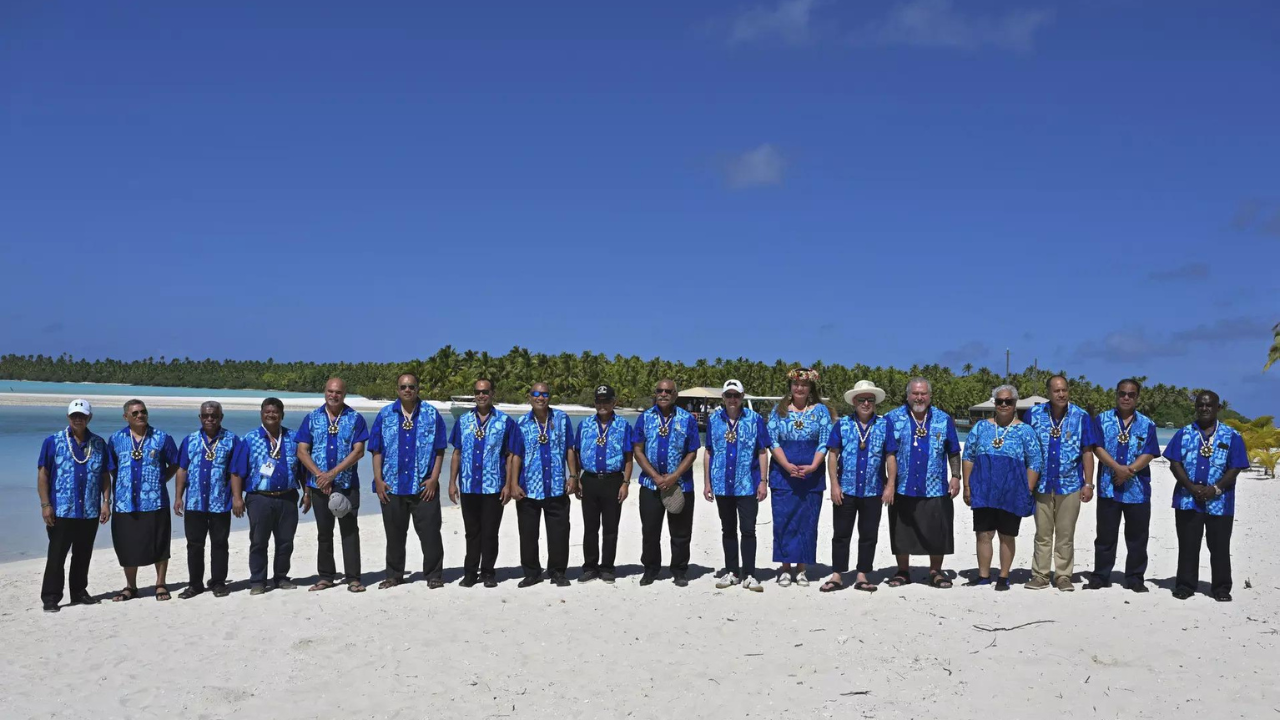[ad_1]
NEW DELHI: Considering the catastrophic impacts of climate change on Tuvalu, Australia has offered refuge to its citizens, who are exposed to risk from rising seas, in a landmark agreement, reported BBC.
Tuvalu, a series of low-lying atolls in the Pacific, is home to 11,200 people and has repeatedly called for greater action to combat climate change.
Australian Prime Minister Anthony Albanese hailed the agreement as “ground-breaking”.
According to the BCC, Tuvalu Prime Minister Kausea Natano called it “a beacon of hope” and “not just a milestone but a giant leap forward in our joint mission to ensure regional stability, sustainability and prosperity”.
The new visas, granting residence to up to 280 Tuvalu citizens, will permit them to reside, work, and study in Australia. The agreement also marks the first instance of Australia extending residency to foreign nationals due to the impact of climate change, as reported by the Australian Broadcasting Corporation.
“It will be regarded as a significant day in which Australia acknowledged that we are part of the Pacific family, and with that comes the responsibility to act,” Mr Albanese was quoted as saying by BBC.
The treaty, known as the Falepili Union, is reportedly considered the “most significant” pact ever between Australia and a Pacific country as it entails Australian support for the nation in terms of climate action and security.
As outlined in the treaty, Australia has committed to safeguarding the Pacific nation from military threats, with Tuvalu reciprocating by agreeing not to form defence alliances with any other countries without the prior approval of Australia.
Comparable agreements exist between New Zealand, the US, and a few other Pacific nations such as Palau, the Federated States of Micronesia, and the Cook Islands.
“Australia has also pledged funding to help Tuvalu adapt to climate change, including A$16.9m (£8.8m; $10.7) to expand the landmass of its main island by 6%,” reported BBC.
Tuvalu has faced persistent challenges in addressing the threat of rising sea levels. In September, the country amended its constitution, affirming that its statehood would be eternal irrespective of the consequences of climate change or any other factors leading to the loss of its territorial land.
In January, Tuvalu committed to constructing a virtual representation of itself in the metaverse as a means of preserving its rich history and cultural heritage.
Tuvalu, a series of low-lying atolls in the Pacific, is home to 11,200 people and has repeatedly called for greater action to combat climate change.
Australian Prime Minister Anthony Albanese hailed the agreement as “ground-breaking”.
According to the BCC, Tuvalu Prime Minister Kausea Natano called it “a beacon of hope” and “not just a milestone but a giant leap forward in our joint mission to ensure regional stability, sustainability and prosperity”.
The new visas, granting residence to up to 280 Tuvalu citizens, will permit them to reside, work, and study in Australia. The agreement also marks the first instance of Australia extending residency to foreign nationals due to the impact of climate change, as reported by the Australian Broadcasting Corporation.
“It will be regarded as a significant day in which Australia acknowledged that we are part of the Pacific family, and with that comes the responsibility to act,” Mr Albanese was quoted as saying by BBC.
The treaty, known as the Falepili Union, is reportedly considered the “most significant” pact ever between Australia and a Pacific country as it entails Australian support for the nation in terms of climate action and security.
As outlined in the treaty, Australia has committed to safeguarding the Pacific nation from military threats, with Tuvalu reciprocating by agreeing not to form defence alliances with any other countries without the prior approval of Australia.
Comparable agreements exist between New Zealand, the US, and a few other Pacific nations such as Palau, the Federated States of Micronesia, and the Cook Islands.
“Australia has also pledged funding to help Tuvalu adapt to climate change, including A$16.9m (£8.8m; $10.7) to expand the landmass of its main island by 6%,” reported BBC.
Tuvalu has faced persistent challenges in addressing the threat of rising sea levels. In September, the country amended its constitution, affirming that its statehood would be eternal irrespective of the consequences of climate change or any other factors leading to the loss of its territorial land.
In January, Tuvalu committed to constructing a virtual representation of itself in the metaverse as a means of preserving its rich history and cultural heritage.


